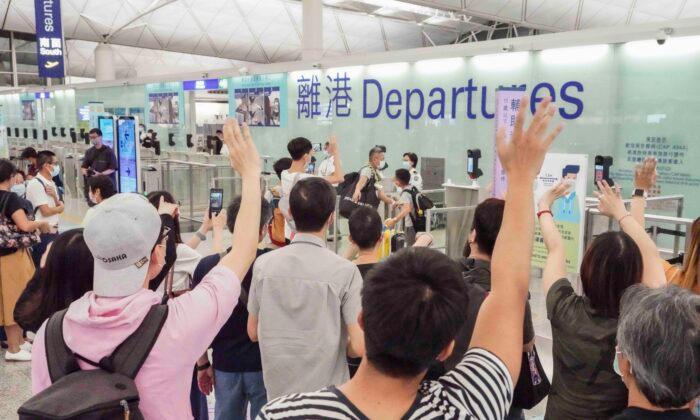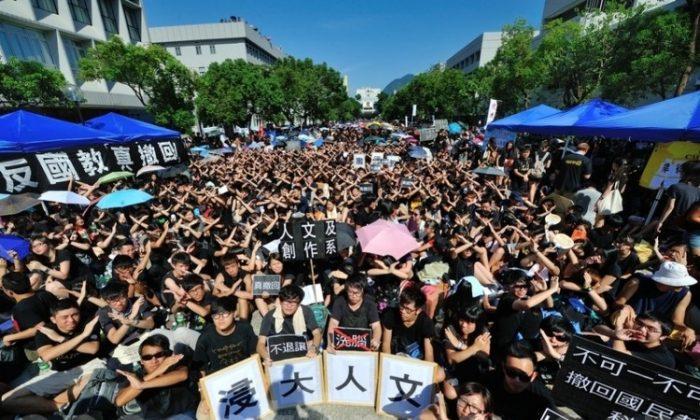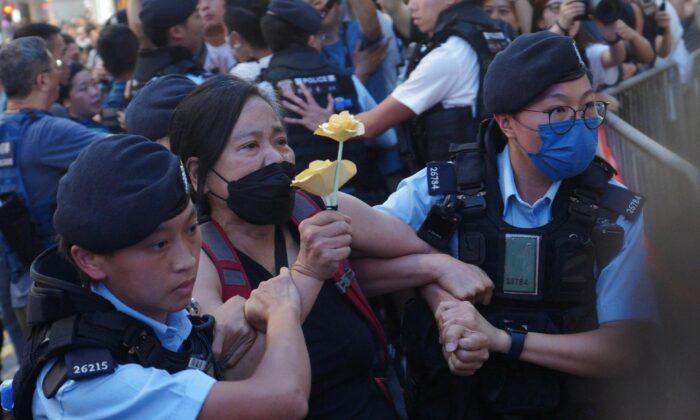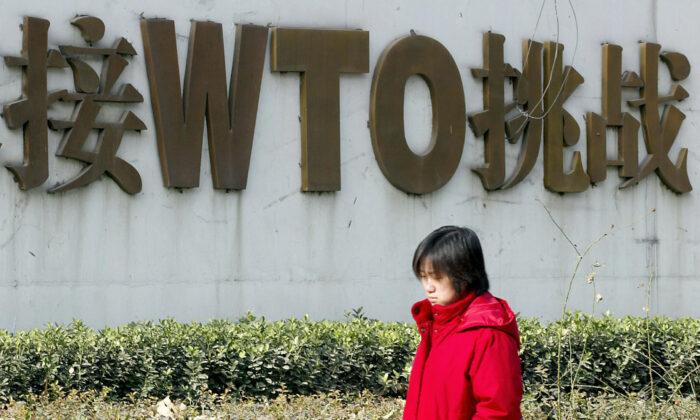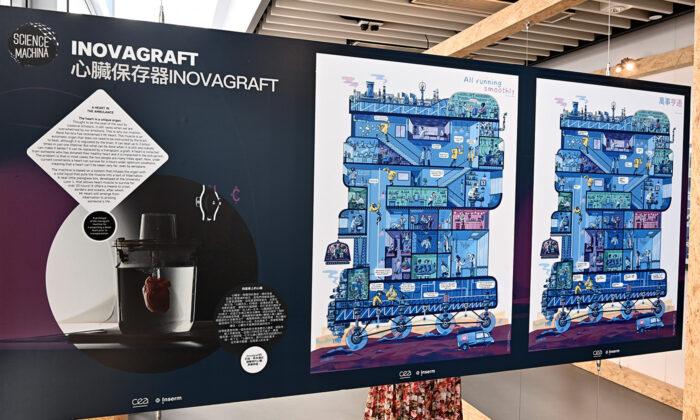The real wave of Hong Kong emigration will come this year and next year, in which 70 percent of emigrants will come from ”yellow” supporters (pro-democracy) and 30 percent from “blue” supporters (the pro-establishment camp), commented Professor Joseph Lian, an economist who had served as a senior advisor in Hong Kong’s Central Policy Unit, in an interview with Sarah Liang from Epoch Times.
It is understandable for the “yellow” supporters to quit the city as freedom and democracy have degenerated into taboo words in the territory, but for the ”blue,” who are supposed to be ardent Chinese patriots, to flee the city to “imperialist countries” together with all their money and family-- should they be morally condemned?
This question should be considered in the context of the 180 years of relationship between Hong Kong and China.
Many Hongkongers consider China to be their motherland, but its relationship with Hong Kong has been complicated since the beginning, and “patriotism” is never a simple solution. At its infancy, Hong Kong, an immigrants’ city, experienced two foretelling developments.
Firstly, the opening of Hong Kong in 1841 attracted many mainland Chinese who had been marginalised and struggled because of the Britain-China first Opium War (1839-1842). However, Britain who won the war was still regarded as “barbarian” and those that helped with building the new colony were seen as “traitors.” Their properties in Hong Kong were burnt by conspirators from Guangdong during the Second Opium War (1856-1860).
Secondly, Hong Kong developed into a paradise for Chinese emigrants after the Taiping Rebellion, in the mid-nineteenth century (1850-1864), when the massive flow of Chinese refugees moved via Hong Kong to countries like America where gold mines had been found in California. Businesses such as shipbuilding, port logistics, finance and remittance, and hotels, blossomed in Hong Kong. This was made complete by the huge international Chinese network in which Tung Wah Hospital, a charitable Chinese hospital in Hong Kong, played an indispensable role.
The antagonism mentioned in the first point was continued through the Canton-Hong Kong General Strike and Boycott (1925-26), during which the Chinese communists tagged Hong Kong as “stinky harbour” instead of its literal translation of “fragrant harbour.” Antagonism was also present during the 1967 Riots, and continues to today with mainland Chinese media demonising Hong Kong.
The uninterrupted trend of emigration as mentioned in the second point provides a way of retreat for Hongkongers in case this frontier city faces unexpected difficulties, like the Covid 19 pandemic, right now. Their combined effect is to make the Chinese identity negotiable.
It is natural to mention the concept of “dual loyalty” when it comes to Tung Wah. Reading the hospital’s history, one is easy to note those directors who were all Chinese elites in the Colony, dressed in official Qing dynasty uniform before it was overthrown in 1912—an unmistakable indication of their loyalty to China. Another indication was the many wooden plaques carved with their names that were gifts from successive Chinese rulers before 1949, which are now a valuable collection of the hospital’s museum. Being Chinese representatives in the Colony, they sought recognition from the British Hong Kong leaders and whoever was in power in China, so as to secure their social status and benefits.
Hongkongers are expected not to speak positively (even neutrally) about their ex-colonial master, on all issues. This is historically inclusive (as seen in the recent deletion of the mentioning of Hong Kong as a British colony in the official webpage of Hong Kong’s Legislative Council). All these shape the values of the pro-establishment supporters and their single identity to China (with the CCP at its core) and anti-imperialist (if not anti-foreign in some cases).
Besides being highly restrictive, the establishment’s position may produce bafflement if put under the test of the classical Marxism about state. The theory goes that state is a product of class antagonism, and as a historical phenomenon it will be gone after “class” disappears. Accordingly, loving one’s country is likewise a historical phenomenon by nature and thus conditional. More importantly it can be paradoxical that love of one’s own country may mean love of an exploitative machine monopolised by the exploiting class, particularly when the state is under, or in the name of–socialism.
Moreover, pro-establishment supporters are less willing to admit that classical Marxism is more characterised by internationalism than nationalism, which is best illustrated by the well-known 1848 Communist Manifesto quote that is always printed in the page ahead of the title page of all Marxist works: “Workers of the world, unite!”
How the pro-establishment supporters will tackle these perplexing ideological issues is food for thought for journalists, social scientists, and future historians.
